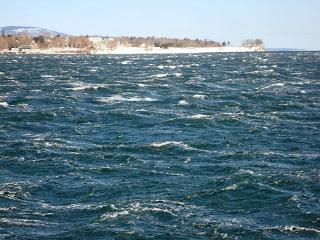
SOMETIMES DURING A DIVE, CONDITIONS ARE JUST PERFECT. SUN IS WARM, SKY IS CLEAR, SEA IS CALM. OTHER TIMES, NOT SO MUCH. THEN WHAT?
First, just to make sure there are no misunderstandings: diving should be both fun and safe. If you’re ever in doubt as to whether a dive will be either, due to rough conditions, always err on the side of conservatism and cancel the dive. Never dive in a situation where you feel you’re outside of your dive skill range.
That being said, as you increase dive experience, the definition on non-divable conditions will change, as your increased skill and experience will make it possible for you to dive in conditions a newbie would not. To make diving safe in situations where the conditions are less than optimal, there are a few precautions you can take.
CHECK WITH LOCALS BEFORE DIVING
If the conditions are rough, the first thing you should do, unless you know your dive very, very well. Is to check with local divers and dive shops to get an idea of what conditions you can expect.
One thing is what the conditions are above the surface, but what you need to find out is what to expect below. Some places are less susceptible to rough conditions, and while the surface may see waves and strong wind, the dive site can be perfectly tranquil at only a few feet of water.
So find out by consulting the locals. What will it likely be like out there? Currents? Swells? When is the area non-diveable? What are you backup and exit options? If in doubt, ask a local divemaster to join you as a precaution.
Read More:::
Kathy Dowsett
kirkscubagear.comDiving in rough seas, Great Inagua Island, Bahamas from YouTube